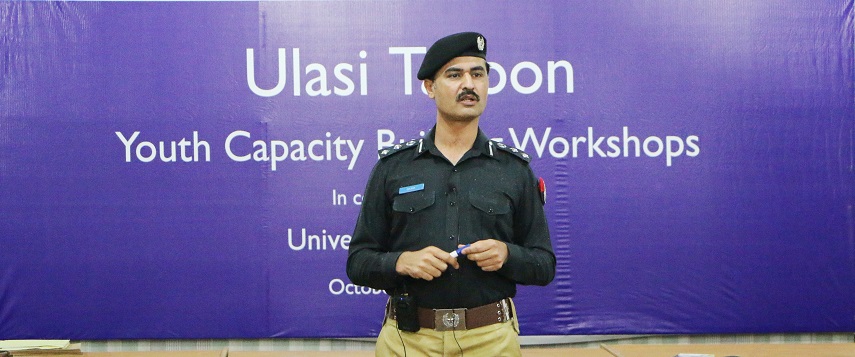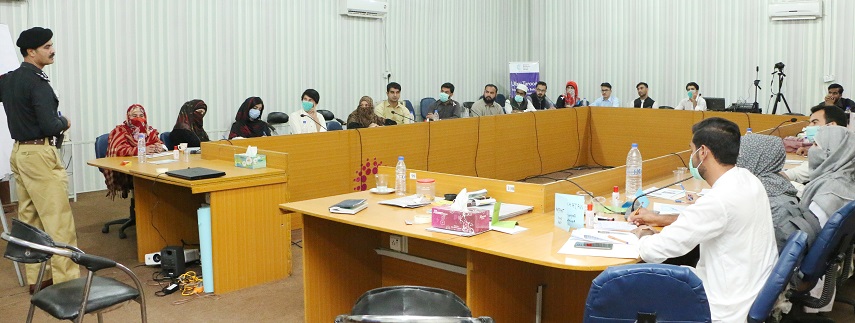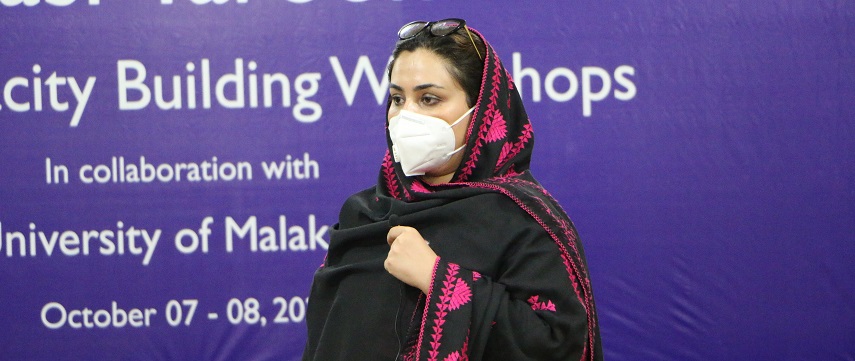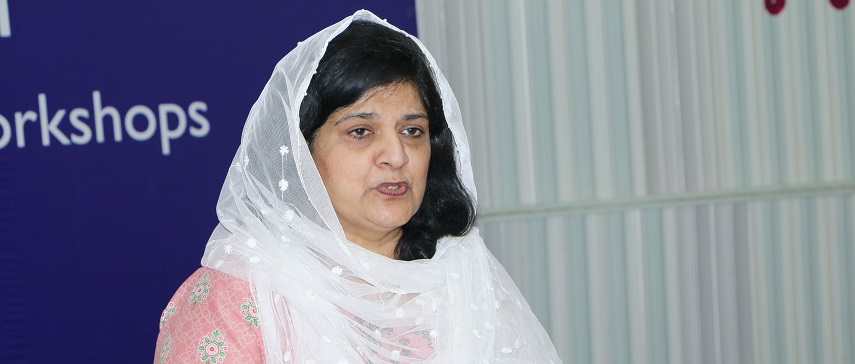The formation and enforcement of law should be considerate of the societal needs and values. A socially cohesive nation is one that prefers collective over individual interests and formulates shared goals of development and prosperity. Such a cohesion has been observed as an essentiality in the history of nation-building process.
These views were expressed by Mr. Qasim Ali Khan, District Police Officer (DPO), Swat, during the 28th round of Ulasi Taroon Youth Capacity Building Workshops, organized by the Center for Research and Security Studies (CRSS) at and in collaboration with the University of Malakand.
DPO Qasim Ali Khan further noted that the prerequisite for rule of law is indiscriminate application of law and accountability. Besides the state, there is a great onus on the members of society to uphold rule of law as a matter of responsible citizenship. The stronger the linkages between the institutions and citizens, the stronger the rule of law. The ideals of equality, justice and inclusion are at the core of notion of rule of law.
Strengthening citizens’ voice through their inclusion in the democratic processes only bolsters accountability mechanism and strengthens institutions. This process is also beneficial for social cohesion as it promotes the sense the meaning, belonging and agency among the citizens.
Given such a large youth population in Pakistan, the attitude and actions of the young matter a lot and they should cultivate a truly responsible mindset as future leaders. They should also formulate and go after the goals of their communal and national development.
Dr. Sumaira Shams, Member, Provincial Assembly of Khyber Pakhtunkhwa said that only by citizens’ active participation in the democratic processes, can we have an inclusive and accountable democracy. While the role of institutions is important in the matters of governance and provision of services meant for public welfare, an equal onus is on the citizens to learn about their rights and duties as responsible citizens, as a measure of active participation in the democratic processes. The synergies between different organs of the state is also important. Inclusive democracy, good governance and across the board accountability are all interlinked, interdependent and demand transparency.
Prof. Dr. Gul Zaman, Vice Chancellor, University of Malakand, noted that the efforts like Ulasi Taroon youth capacity building workshops help prepare a responsible future leadership by developing youth’s understanding about their rights and responsibilities. They must understand that the exchange of ideas that takes place as part of dialogue not only creates new knowledge but also the opportunities for a more connected future. Social cohesion strengthens by cultivating the idea and practice of self-accountability among citizens.
Ms. Shagufta Khalique, educationist, said that the compliance with our core constitutional values of acceptance, equality and rule of law is key to social cohesion. As responsible citizens, we must respect fundamental human rights to promote harmony in the society. Pakistan has rich religious, cultural and ethnic diversity and respecting this diversity is critical to peaceful coexistence of the people from these diverse backgrounds.
Learning about other faiths can help build interfaith harmony in the society. Inter-religious and intra-religious dialogue can address misunderstandings about other faiths.
She said that prerequisites for sustainable conflict resolution are the skills of communication, listening and empathy with refined analytical skill. Youth as future leaders must equip themselves with these skills to be effective peace builders.
Mr. Malik Mustafa, Team Leader, Ulasi Taroon CRSS said critical thinking is one of the most essential skills youth need to have to be able to master complex problem solving. It is a prism and a perspective to look at any situation which allows you to clarify your vision – critical to inform your decision – by pondering all the potential aspects of that issue. Critical thinking is about developing your understanding and opinion on the basis of all the available information and using research-based evidence to support your arguments. The premise in your argument must have some evidential support to support your conclusion.
Youth must comply with the core constitutional values of respect, equality, tolerance and rule of law to foster social cohesion in the society.
About Ulasi Taroon:
Ulasi Taroon is a youth leadership development initiative of CRSS running since 2017, with over 800 alumni from different public and private sector universities across KP. The programme aims to promote social cohesion and cultivate the young through a discourse embedded in the core constitutional values of peace and harmony.





